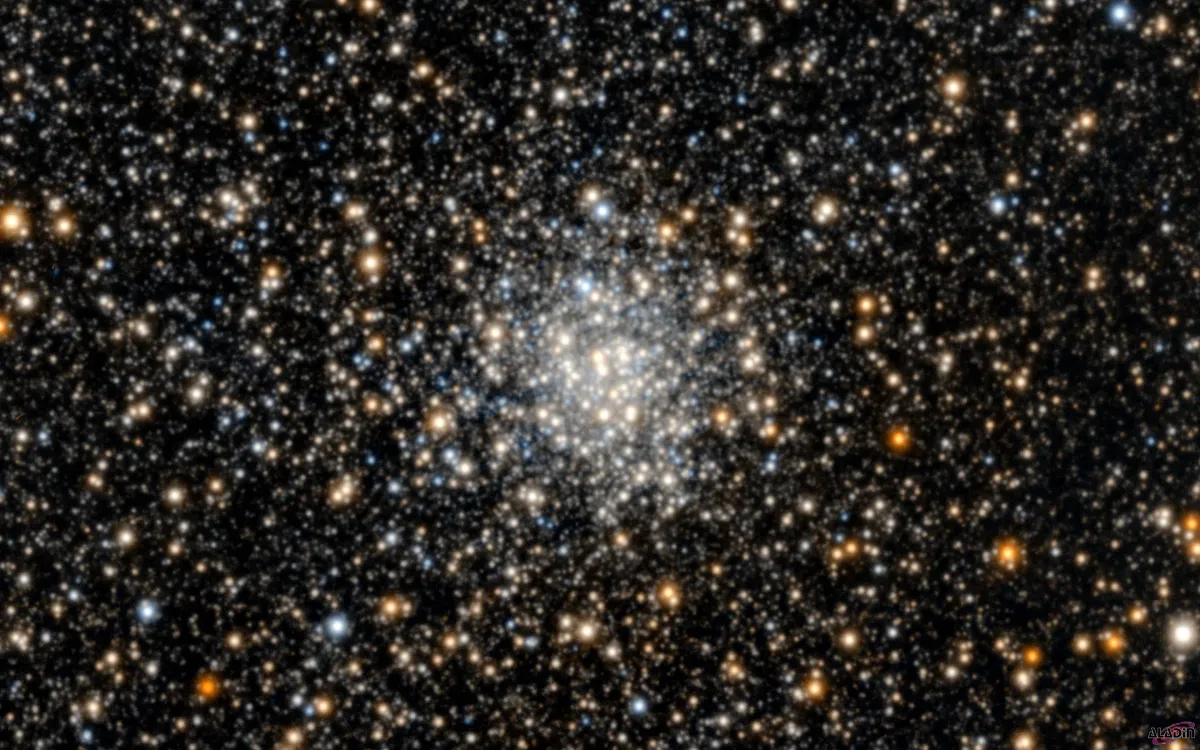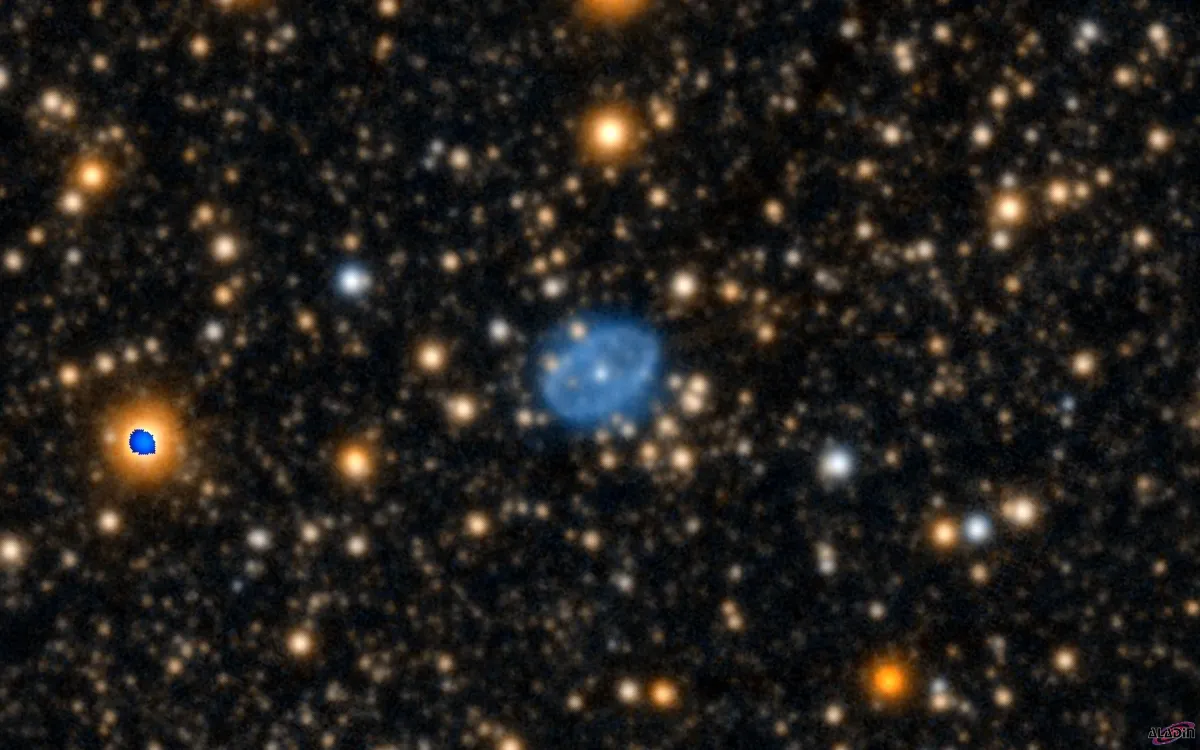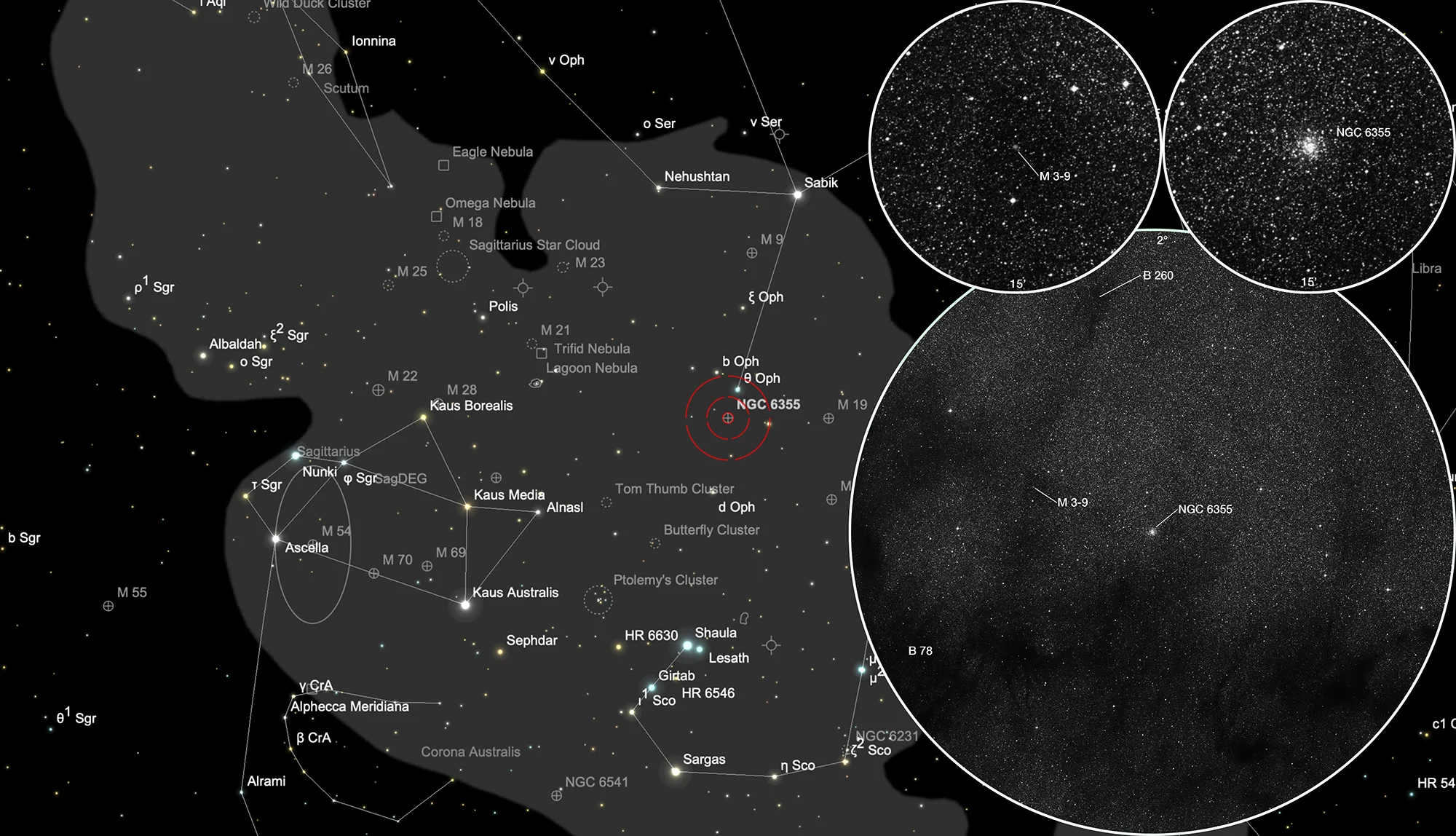Globular Cluster NGC 6355 & Planetary Nebula Minkowski 3-9

NGC 6355
On 24 May 1784 William Herschel discovered a «bright nebula» which he listed as I 46 with the notes: «Pretty bright, considerably large, round, brighter in the middle, resolvable.» [463]
In 1931 Swedish astronomer Per Collinder published his «Catalogue of Open Galactic Clusters» based on a survey of Lundmark using the Franklin-Adams plates and Collinder using the Franklin-Adams charts. Cluster nr. 330 (Collinder 330, Cr 330) is listed there with a diameter of 1 arcminute and classified as a globular cluster. [455]
At a distance of circa 9.2 kpc (30'000 light years) the globular cluster is near the galactic centre.
| Designation | NGC 6355 |
| Type | GCL |
| Right Ascension (J2000.0) | 17h 23m 58.6s |
| Declination (J2000.0) | -26° 21' 11" |
| Diameter | 4.2 arcmin |
| Visual magnitude | 8.6 mag |
| Metric Distance | 9.200 kpc |
| Dreyer Description | cF, L, R, gbM, rrr |
| Identification, Remarks | WH I 46; h 3681; GC 4295; GCL 63; ESO 519-SC15 |

Minkowski 3-9
The planetary nebula was discovered in 1948 by the German-American astronomer Rudolph Minkowski. He detected objects with little or no continuous H-α spectrum on objective-prism survey plates obtained by W. C. Miller using the 10-inch telescope at Mount Wilson. Further examination of its appearance on direct photographs, taken at the Newtonian focus of the 60-inch or 100-inch telescope on Mount Wilson, revealed its nature as a planetary nebula. Minkowski also contributed to the creation of the National Geographic Society - Palomar Observatory Sky Survey (POSS). [700]
| Designations | PN G359.9+05.1: M 3- 9, PK 359+05.2, ESO 519-17, He 2- 221, Sa 2-196, VV' 189, Wray 17- 78 |
| Right Ascension (J2000.0) | 17h 25m 43s |
| Declination (J2000.0) | -26° 11' 54" |
| Dimensions | 17." (optical), 17." (radio) |
| Radial Velocity | -81.6 ± 4.9 km/s |
| C-Star Designations | AG82 239 |
| C-Star Magnitude | B: 18.86 |
| Discoverer | MINKOWSKI 1948 |
Finder Chart
The globular cluster NGC 6355 and planetary nebula Minkowski 3-9 are located in the constellation Ophiuchus, roughly 1.25° south of 3.2 mag star θ Ophiuchi. On 13 June they are in opposition to the Sun. From your location they can best be seen in the months February to November.
